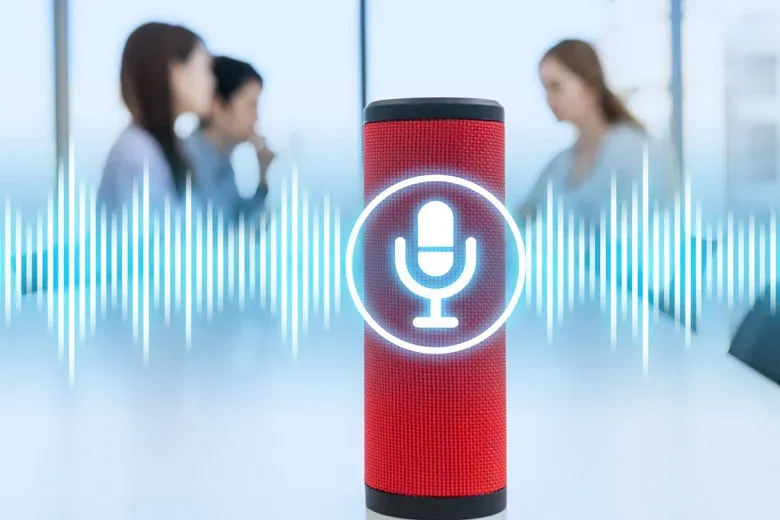Voice and Language-Driven Intelligence

Until a few years back, speaking to a voice assistant while cooking new recipes or asking for directions would have been either akin to insanity or the equivalent of having a genie in a bottle. But look at how normal it is now. It is hard to imagine a road trip or a workout session without the assured, helpful and insightful voice of artificial intelligence (AI) around.
Voice sptodayeaks, and loud
All of this has its roots in voice and language-driven intelligence. It is a genre of artificial intelligence (AI) that can listen, translate, interpret and act in real-time voice. It can transcribe conversations as they happen. It uses machine intelligence and natural language processing (NLP) for instant speech recognition and contextual translation. It can also distinguish one voice or speaker from another.
In voice intelligence, the solution or model of artificial intelligence (AI) being deployed for a specific case can listen to the voice, record data, process it, and apply it for insights or decisions in an intelligent way. This solution learns from the data it hears. This ability transpires into many solutions like conversational AI, chatbots, NLP-powered algorithms, and intelligent assistants. As a result, they permeate all aspects of our lives and redefine many industries. In fact, as per a report by Market Research Future (MRFR), the market valuation of this space stood at $1.68 Billion in 2019 and is projected to reach $7.30 Billion by 2025. Furthermore, in a PwC-FICCI report, as many as 83 percent cited customer experience enhancement as the reason for AI implementation- followed by improving productivity (57 percent) and increasing revenue (56 percent) as the other main goals for adopting AI. And 80 percent of respondents from the banking and financial services industry have deployed chatbots to make customer service easy. Also, 65 percent of them have deployed fraud detection AI engines.
In an Adobe 2020 survey of 1000 voice technology users, one in three voice users (31 percent) counted sanitation, like not needing to touch high-traffic surfaces, as a benefit of using voice technology. Not surprisingly, 18 percent of users use voice technology for health or fitness applications and 86 percent of users say that voice technology could make visiting businesses or attending events more sanitary. Predominantly, people use this technology like apps for maps or driving (52 percent), texting or chat (51 percent), and music (46 percent). About 37 percent would be open to using it for checking their bank balance, 29 percent to book a medical appointment, and 28 percent for grocery delivery.
There is no end to the possibilities that can be unlocked with voice recognition. Some typical applications of NLP and voice recognition are:
- Keyword spotting in social media
- Audio marketing
- Sales assistance in precise prospecting
- Automation of many time-intensive tasks
- Product improvement
- Many other marketing scenarios based on voice data
- Live transcription in litigation and other documentation-heavy areas
- Compliance monitoring
- Automotive V2V solutions
- Robotic surgeries
- Car navigation
- Smart contact centres
- Intelligent banking
- Fraud detection
- Customer support and call-center optimization
- Robotic process automation (RPA)
- Document digitization
- Data preservation
- Digital assistants for CXOs
- Virtual assistants
As an industry-ready technology, voice recognition is getting stronger and stronger every day- and is still evolving in many aspects. The Adobe survey signified that voice technology would better meet user needs as its design continues to develop – as predicted by 49 percent of users. However, while 89 percent of users say that voice technology is easy to use, they look for better accuracy as the most desired improvement. And 57 percent of users opined that improvements in accuracy would cause them to use voice technology more often or for more purposes. In addition, the privacy and comfort parts of this technology also need to get better. This is apparent when 62 percent feel awkward using voice technology when other people are present.
It will take some time before we sharpen the magic of voice intelligence. Soon it would get so sophisticated and easy that it would be like using the good old genie in the bottle. After all, that genie was also a fairy-tale version of a voice assistant. It worked well because it could identify, understand and act upon a specific voice. Today’s AI-based genies are going a step further. They are constantly hearing and learning from their voice masters. So we need to keep thinking of smart wishes to ask of them. Thankfully, there is no limit to the number of wishes. They just need to be worthy enough of these new genies. Can you think of what to ask next?

TalentSprint
TalentSprint is a leading deep-tech education company. It partners with esteemed academic institutions and global corporations to offer advanced learning programs in deep-tech, management, and emerging technologies. Known for its high-impact programs co-created with think tanks and experts, TalentSprint blends academic expertise with practical industry experience.



